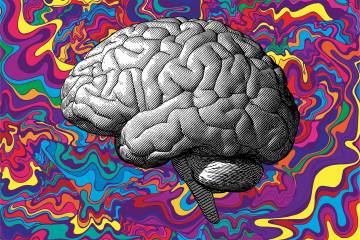Recent studies show psilocybin-assisted herapy helps to heal depression, anxiety, PTSD and more

We are always on the look our for more updated studies on psilocybin and it’s benefits in the healing process.
We’ll keep adding sources as we come across them, but here are the most recent details of emerging science behind the study of psilocybin and it’s affects. Enjoy!
Psilocybin is a psychedelic substance found in certain species of mushrooms. It has gained increasing attention in recent years for its potential as a treatment for a variety of mental health conditions. Here is a summary of some of the most recent studies on psilocybin:
A 2020 study published in the journal JAMA Psychiatry found that a single dose of psilocybin was associated with significant decreases in depression and anxiety in patients with treatment-resistant depression. These effects were sustained for up to 5 weeks after treatment.
A 2021 study published in the New England Journal of Medicine found that psilocybin-assisted therapy was effective in reducing symptoms of post-traumatic stress disorder (PTSD) in military veterans. The study showed that after just two sessions of psilocybin-assisted therapy, 68% of participants no longer met the criteria for a diagnosis of PTSD.
A 2020 study published in the journal Neuropharmacology found that psilocybin may have neuroprotective effects, meaning it may help protect brain cells from damage. The study showed that psilocybin increased the production of a protein called BDNF, which has been shown to promote the growth and survival of brain cells.
A 2020 systematic review and meta-analysis published in the journal Psychopharmacology analyzed the existing research on the use of psilocybin for various mental health conditions. The review found that psilocybin was associated with significant reductions in depression, anxiety, and addiction, as well as an increase in spiritual well-being.
Overall, these studies suggest that psilocybin may be a promising treatment for a variety of mental health conditions, including depression, anxiety, PTSD, and addiction. However, it is important to note that more research is needed to fully understand the potential risks and benefits of psilocybin and to determine the optimal dosing and administration of the substance. (That’s where we come in! ;))
